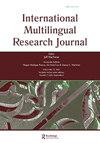从复杂的语言意识形态走向遗产语言维护——以美国华人移民家庭为例
IF 2.1
1区 文学
Q2 EDUCATION & EDUCATIONAL RESEARCH
引用次数: 1
摘要
摘要:本研究旨在探讨华裔美国家庭如何通过对其遗产语言的不同意识形态取向的协商而超越本质主义思维,以及这些家庭的不同意识形态如何影响母语的维护。通过对美国波士顿6个中国移民家庭进行三轮半结构化访谈收集数据,采用定性内容分析来分析父母意识形态的复杂性。研究结果表明,这些移民家庭有能力将他们的传统语言视为一个问题、一种权利和一种资源,以应对他们在东道国遇到的现实问题。此外,每个家庭内部可能存在的多种意识形态取向的共存和矛盾可能与代际语言传递有关。本研究从微观层面揭示了语言保存的潜在过程,对语言意识形态的复杂组合有了更广泛的理解,并证实了Ruiz的“三方取向”理论为分析不同信仰的相互作用提供了实用的启发。至关重要的是,在移民家庭中是否保留自己的传统语言,与其说是对祖国的怀念,不如说是作为新的多语言社会成员,在他们为意义创造所做的主动尝试中,一个正在进行的过程。本文章由计算机程序翻译,如有差异,请以英文原文为准。
Unpacking complex language ideologies toward heritage language maintenance: a case of Chinese migrant families in the US
ABSTRACT This study aims to explore how a group of Chinese American families transcend essentialist thinking through negotiating with different ideological orientations toward their heritage language and how these families’ different ideological profiles could influence the home language maintenance. Data were collected through three rounds of semi-structured interviews with six Chinese migrant families in Boston, U.S. Qualitative content analysis was carried out to analyze the complexity of parents’ ideologies. The findings revealed these migrant families’ capability of perceiving their heritage language as a problem, a right, and a resource to cope with real-life problems they encounter in the host country. Moreover, the possible coexistence and contradiction of multiple ideological orientations within each family may be associated with the intergenerational linguistic transmission. The study uncovers the underlying process of language preservation at the micro-level, elicits a more expansive understanding of language ideology as a complex assemblage, and substantiates Ruiz’s tripartite orientations as a practical heuristic for analyzing the interplay of differing beliefs. Crucially, whether to maintain one’s heritage language in migrant families is less of a nostalgia for their home country, but rather more of an ongoing process situated in their agentive attempts for meaning-making as members of their new multilingual society.
求助全文
通过发布文献求助,成功后即可免费获取论文全文。
去求助
来源期刊
CiteScore
4.10
自引率
4.80%
发文量
19
期刊介绍:
The International Multilingual Research Journal (IMRJ) invites scholarly contributions with strong interdisciplinary perspectives to understand and promote bi/multilingualism, bi/multi-literacy, and linguistic democracy. The journal’s focus is on these topics as related to languages other than English as well as dialectal variations of English. It has three thematic emphases: the intersection of language and culture, the dialectics of the local and global, and comparative models within and across contexts. IMRJ is committed to promoting equity, access, and social justice in education, and to offering accessible research and policy analyses to better inform scholars, educators, students, and policy makers. IMRJ is particularly interested in scholarship grounded in interdisciplinary frameworks that offer insights from linguistics, applied linguistics, education, globalization and immigration studies, cultural psychology, linguistic and psychological anthropology, sociolinguistics, literacy studies, post-colonial studies, critical race theory, and critical theory and pedagogy. It seeks theoretical and empirical scholarship with implications for research, policy, and practice. Submissions of research articles based on quantitative, qualitative, and mixed methods are encouraged. The journal includes book reviews and two occasional sections: Perspectives and Research Notes. Perspectives allows for informed debate and exchanges on current issues and hot topics related to bi/multilingualism, bi/multi-literacy, and linguistic democracy from research, practice, and policy perspectives. Research Notes are shorter submissions that provide updates on major research projects and trends in the field.

 求助内容:
求助内容: 应助结果提醒方式:
应助结果提醒方式:


